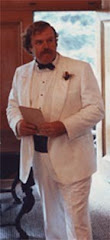There were 57 bars in downtown Baumholder, a figure made astronomical by the fact that downtown consisted of nine square blocks. Most of the bars had names chosen to appeal to Americans: the California Club, the Florida Club, the Texas Club, Jazz Alley, Blues Alley, Martini’s. Others tried to lure in soldiers with exotic names like The Golden Hirsch, Dancers A’GoGo, The Femme Fatale, Gangster Den. It was rumored – and Bass believed the rumors to be true – that most of the bars in Baumholder were owned by a syndicate of German businessmen, most of whom lived in Berlin and Munich. But others were owned locally, the way Konrad was a partner in The Family Club, which the linguists called their off-base home. Seeing how much money was being made by serving the troops. local farmers joined the frenzy to make a quick mark off the Americans, who after all had more money to spend than the Germans had seen in a very long time.
The bars had come to Baumholder during the troop buildup of the Korean War. The Soviet invasion of Germany was a threat real enough to respond to, and the U.S. responded by bringing tens of thousands of soldiers to West Germany. Baumholder, before World War II a small farming community in southwestern Germany’s Rhineland area, with a population never exceeding 3000, was chosen for the major American buildup because the Germans themselves had trained here, taking advantage of the bare, rolling hills for their exercises and war games. The Americans did the same.
Almost overnight, new bars opened downtown to entertain and serve the American G.I.s. Bakeries became bars, barns became nightclubs. Because the American army was segregated at the start of the Korean War, the new bars became segregated. The Florida Club, for example, became a bar that only black troops frequented. The tradition of segregation had remained even after the army became integrated, and today if Bass had entered The Florida Club, he would have been one of only a handful of whites there, and the others were likely to be young Germans eager to hear the American jazz on the jukebox. The jukeboxes in the white American bars mostly featured country-western music.
The Family Club became the hangout for the Monterey Marys because it was the first bar one reached coming down from the hill, which also made it the farthest from the kaserne beyond the other side of town where the Animals were stationed. There was a certain sense of security in the fact that a thirsty Animal would have to pass 56 bars before reaching The Family Club. Of course, under normal circumstances the linguists avoided the Animals at all costs and therefore stayed on the hill whenever the Animals came to town. The linguists knew full well that beating up a Monterey Mary would be considered great fun among the paratroopers and special forces after six or seven weeks of war games in the field. It was always more fun to take hostility out on a stranger than on a comrade.
I've taken little liberty with the facts here. The Family Club was, in fact, where the Russian linguists hung out, the first GI bar one reached from our small base on a hill, after first passing a gasthaus (Gasthaus Albert, in fact; in the novel I call it Gasthaus Konrad). We called the paratroopers Animals and they called us Monterey Marys, after our language school in Monterey, California.
Edward Albee has remarked that his best work is what he is working on at the time. I've always agreed. This feels like my Magnum Opus. It certainly took the longest time to get right: I've been trying to write this damn novel for forty years! Red Hooker, the buddy in Kerouac's Scroll, based on my buddy Dick, was born in the first version of the army novel in the late 60s but doesn't appear in this one. There is a model for the Sullivan character but I ain't tellin'. I, once again, am the model for the Robert Bass character. The German businessman is a composite of various German non-reformed Nazis I met during my service. This, in fact, was a major shock to me in my "innocent youth" -- that there were well-spoken, intelligent, cultivated Germans who still harbored a fondness for the "good old days" of Nazis rule. And that the same might return, albeit absent some of the "ugliness" they claimed not to know about. Does anything ever change in this world?










No comments:
Post a Comment